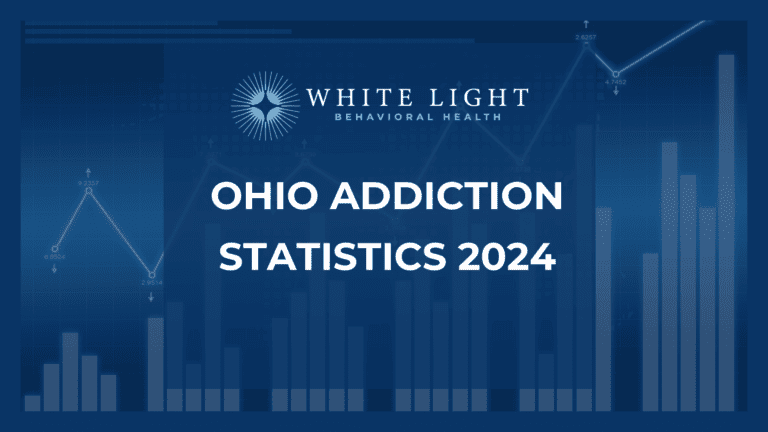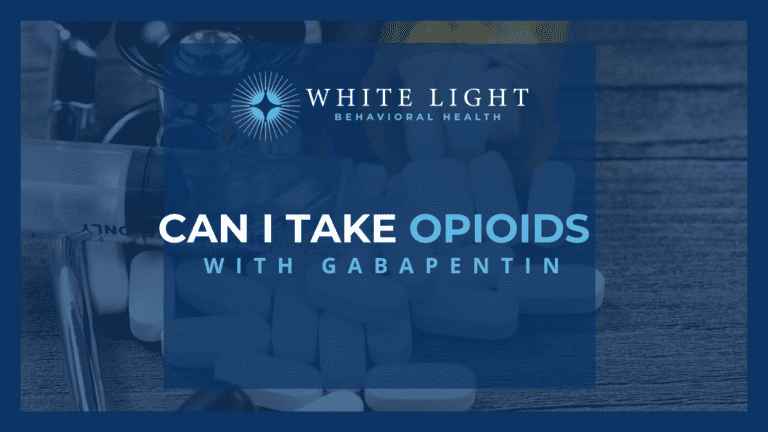
Methamphetamine, commonly known as meth, has emerged as a formidable challenge within Ohio, contributing to the state’s ongoing battle against substance abuse. The addictive nature of meth leads to devastating effects on individuals’ physical health, mental well-being, and social life. Recognizing the acute need for specialized intervention, White Light Behavioral Health presents a comprehensive meth withdrawal and detox center in Ohio. Our facility is committed to offering a path to recovery that is grounded in empathy, cutting-edge treatment modalities, and a deep understanding of the complexities involved in meth addiction recovery.
Who Needs Meth Detox And Rehab?
The meth detox program at White Light is designed for individuals struggling with methamphetamine addiction. This program serves as an essential foundation for:
- Individuals experiencing withdrawal symptoms, signaling a dependency on meth.
- Those who have tried unsuccessfully to quit meth on their own.
- Anyone ready to take the first step towards a life free from methamphetamine.
Key signs that indicate the need for meth detox include:
- Building tolerance to meth, necessitating higher doses for the same effect.
- Suffering withdrawal symptoms in the absence of meth, such as fatigue, depression, and intense cravings.
- Neglecting responsibilities at home, work, or school due to meth use.
- Continuing meth use despite facing harmful consequences to one’s health and relationships.
- Engaging in risky or illegal activities to acquire meth.
- An expressed desire to quit meth but finding oneself unable to overcome the cravings or withdrawal symptoms.
White Light’s meth detox program offers a compassionate, structured environment to support clients through the physical withdrawal process while also addressing the psychological challenges associated with meth addiction.

Rehab Programs For Meth Addiction In Ohio
- Medical Detoxification: Establishes the groundwork for recovery with protocols backed by scientific evidence to alleviate withdrawal symptoms under continuous medical care.
- Residential Rehab: Offers a supportive, structured setting for deep healing during the early recovery phase, encompassing both medical treatment and therapeutic support.
- Partial Hospitalization Program (PHP): Serves as a transitional phase between intensive residential care and outpatient treatment, providing substantial support while enabling clients to start reintegrating with their daily lives.
- Intensive Outpatient Program (IOP): Aids clients in consolidating their recovery with a balanced, comprehensive care approach, perfect for those progressing toward greater autonomy.
Understanding Meth Withdrawal
- Withdrawal from methamphetamine can be a harrowing experience, marked by intense cravings, depression, fatigue, and sometimes, psychotic symptoms. These symptoms can pose significant barriers to cessation and highlight the critical need for medically supervised detox. A safe and supportive environment, like that provided by White Light Behavioral Health, is essential to navigate this challenging phase. Our medical professionals are adept at managing the symptoms of meth withdrawal, offering both medical and emotional support to ensure clients can safely detox while minimizing discomfort. Other Methamphetamine withdrawal symptoms include:
- Unpleasant or vivid dreams
- Changes in sleep habits
- Changes in appetite
- Agitation
- Anxiety
- Depression
How Long Do Meth Withdrawal Symptoms Last?

Understanding The Detoxification Process For Meth
After the detoxification process is complete, this is not the end of treatment for your substance use disorder. A substance use disorder is a chronic disease because the changes in the brain cause you to compulsively seek your substance of choice even though you are not actively choosing to do so. It is also a disease that is prone to relapse, so there is a strong chance that you would return to your substance use if you fail to continue your treatment after the detoxification process ends.

What Is the Difference Between Meth and Cocaine Detox?
Meth Detox involves addressing the long-lasting and intense withdrawal symptoms that can occur due to meth’s high potency and the way it affects the brain. Meth withdrawal often includes symptoms such as fatigue, depression, and increased appetite, and can last several weeks. The detox process may require a combination of medical supervision, medication to manage symptoms, and supportive care to address the psychological aspects of addiction.
Cocaine Detox, on the other hand, typically deals with a shorter duration of withdrawal symptoms, which might include agitation, restlessness, and cravings. Although the physical withdrawal from cocaine can be less intense than from meth, the psychological grip of cocaine addiction can be strong, requiring a focused approach to therapy and counseling to overcome.
The key differences in detoxing from these substances are rooted in their pharmacological effects and how they interact with the body’s neurochemistry. Meth detox often requires a longer, more intensive treatment plan due to the substance’s long half-life and the severe impact on the brain’s reward system. Cocaine detox, while potentially shorter, demands a strong emphasis on psychological support to address the intense cravings and mood changes that can accompany withdrawal.
Locating A Meth Detox Facility In Ohio
White Light Behavioral Health is conveniently located in Ohio, making it accessible for individuals throughout the state looking for support with methamphetamine withdrawal. Our facility is designed to offer a tranquil environment that promotes healing and recovery.
Take the First Step Toward Recovery
Setting out on the journey to overcome methamphetamine addiction is a significant step towards not only sobriety but also addressing underlying mental disorders that often accompany substance abuse. At White Light Behavioral Health, we are dedicated to guiding you through the medical detox process with a holistic approach, offering comprehensive services that extend beyond detox to include mental disorder treatment. If you or a loved one is battling meth addiction and its associated mental health challenges, we invite you to discover the support available through our programs. Learn more about our approach to detox and how we can assist in the first steps towards recovery, healing, and managing mental health effectively.
Our commitment at White Light Behavioral Health is to provide compassionate and comprehensive care for individuals struggling with meth addiction and concurrent mental health issues. Our team is prepared to support you at every stage of your recovery, ensuring a journey towards lasting sobriety, health, and well-being.
Frequently Asked Questions About Meth Detox
How long does meth detox take?
The duration of meth detox can vary depending on several factors, including the length of use, the amount used, and individual health considerations. Generally, the acute phase of withdrawal lasts from a few days to a week, but our medical team provides a tailored assessment to offer a more specific timeline for each client.
What happens after detox?
Detox is a critical first step, but lasting recovery from meth addiction often requires ongoing treatment and support. After detox, White Light Behavioral Health offers a range of services, including individual therapy, group counseling, and aftercare planning, to address the psychological aspects of addiction and support sustained sobriety.
Does White Light accept insurance for detox and rehab services?
Yes, White Light works with many insurance providers to cover the cost of detox and subsequent treatment services. Our admissions team is available to assist with insurance verification and exploring your coverage options to ensure you can access the care you need.
Can family members participate in the treatment process?
Family involvement can play a vital role in the recovery process. White Light encourages family participation through therapy sessions and educational programs designed to support healing and rebuild relationships affected by addiction.



